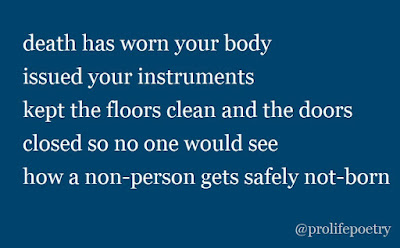“The people want Roe to stay.”
Polls asking about support for Roe v. Wade
Polls about Roe v. Wade consistently find that a strong majority of Americans don’t want Roe overturned. Examples:
About seven-in-ten Americans oppose overturning Roe v. Wade, Pew Research, January 3, 2017. “Would you like to see the Supreme Court completely overturn its Roe v. Wade decision, or not?” 69% answered “No, do not overturn.”
Nearly Two-Thirds of Americans Want Roe v. Wade to Stand, Gallup, July 12, 2018. “Would you like to see the Supreme Court overturn its 1973 Roe v. Wade decision concerning abortion, or not?” 64% answered “No, not overturn.”
Support for Roe v. Wade hits new high, NBC, July 23, 2018. “Should Roe v. Wade be overturned?” 71% answered “No, do not overturn.”
Polls asking about the time frame in which abortion should be legal.
Polls that ask about when abortion should be legal (e.g. by trimester or more specific gestational age) find that most Americans–including most people who call themselves pro-choice–increasingly oppose abortion as the pregnancy goes on. Examples:
Americans’ Opinion on Abortion, Marist, January 2018
“Which comes closest to your opinion on abortion: (1) Available to a woman any time during her entire pregnancy, (2) only during the first six months of pregnancy, (3) only during the first three months of pregnancy, (4) only in cases of rape, incest, or to save the life of the mother, (5) only to save the life of the mother, (6) should never be permitted under any circumstances.”
- 11% of Americans said abortion should be available only during the first six months of pregnancy (including 19% of people who identified as pro-choice)
- 12% of Americans said abortion should be available anytime during the pregnancy (including 21% of people who identified as pro-choice)
- In other words, only 23% of Americans (including 40% of pro-choice people) chose options that allowed abortion after the first trimester.
Millennials have a surprising view on later-term abortions, Washington Post, January 31, 2018
“If a ban on abortions after 20 weeks of pregnancy were enacted in the state in which you live, would you support or oppose that policy?”
- Americans were exactly split, with 46% saying they’d oppose and 46% saying they’d support.
- 36% of Democrats, 45% of Independents, and 56% of Republicans said they’d support the ban.
- Strangely, every age demographic was more likely to support than oppose the ban except those aged 65 and older.
Americans’ Support For Abortion Rights Wanes As Pregnancy Progresses, NPR, June 13, 2018
“Gallup finds that 60 percent of Americans believe abortion generally should be legal during the first three months of pregnancy, known as the first trimester. That support drops by more than half, to 28 percent, once a pregnancy reaches the second trimester; it falls to 13 percent in the third trimester, at which point the fetus is often viable with medical support.”
Polls asking about the circumstances under which abortion should be legal.
And polls that ask about why abortion should be legal (e.g. for rape, life of the mother, fetal abnormalities, socioeconomic reasons) find that most Americans think abortion should be legal only for the most dire of reasons, i.e. if the woman was raped or if the pregnancy threatens her life. But those situations constitute less than 5% of all abortions, meaning people think nearly all instances of abortion today should be illegal.
The State of Abortion in the United States, National Right to Life, January 2014
“Which of the following statements most closely describes your own position on the issue of abortion: (1) Abortion should be prohibited in all circumstances; (2) Abortion should be legal only to save the life of the mother; (3) Abortion should be legal only in cases of rape or incest, and to save the life of the mother; (4) Abortion should be legal for any reason, but not after the first three months of pregnancy; (5) Abortion should be legal for any reason, but not after the first six months of pregnancy; or (6) Abortion should be legal for any reason at any time during a woman’s pregnancy.”
- 53% said abortion should be illegal either (a) in all circumstances, (b) all circumstances except to save the life of the mother, or (c) all circumstances except cases of rape and to save the life of the mother
- 42% said abortion should be legal for any reason either (a) any time during a woman’s pregnancy, (b) only in the first six months, or (c) only in the first three months (only 22% of Americans thought abortion should be legal for any reason after the first three months.)
Americans’ Opinion on Abortion, Marist, January 2018
“Which comes closest to your opinion on abortion: (1) Available to a woman any time during her entire pregnancy, (2) only during the first six months of pregnancy, (3) only during the first three months of pregnancy, (4) only in cases of rape, incest, or to save the life of the mother, (5) only to save the life of the mother, (6) should never be permitted under any circumstances.”
- 50% of Americans said abortion should either (a) never be permitted, (b) be permitted only to save the life of the mother, or (c) be permitted only in cases of rape, incest, or to save the life of the mother.
- When broken down by “pro-life” vs “pro-choice” labels, the same poll found 88% of pro-life people and 19% of pro-choice people held those more restrictive views.
Trimesters Still Key to U.S. Abortion Views, Gallup, June 13, 2018
- 83% of Americans think abortion should be legal in the 1st trimester if the woman’s life is endangers; 75% say the same for 3rd trimester
- 77% think abortion should be legal in the 1st trimester if the pregnancy was caused by rape; 52% say the same for 3rd trimester
- Only 45% think abortion should be legal in the 1st trimester for any reason; 20% say the same for 3rd trimester
Republicans divided over abortion, The Hill, September 6, 2018
“Which comes closest to your views: (1) Abortion should be illegal under all circumstances, (2) abortion should be legal in limited circumstances such as rape, incest, and to save the life of the mother, (3) abortion should be legal under most circumstances until the point of viability (start of the 3rd trimester), or (4) abortion should be legal under all circumstances.”
- 55% of Americans said abortion should be either illegal in all circumstances or legal in limited circumstances such as rape and to save the life of the mother.
- When broken down by demographics, the poll found that 44% of Democrats, 51% of Independents, 57% of Millennials, and 71% of Republicans held those more restrictive views.
These poll results are incompatible.
When asked about trimesters, most Americans think abortion should be illegal after the first trimester, which ends at about 13 weeks gestation. Yet when asked about a ban on abortion at 20 weeks (almost 2 months into the 2nd trimester), Americans are evenly split on whether they’d support or oppose such a ban. This implies a large group of Americans think abortion should be illegal after 13 weeks but also oppose a ban at 20 weeks.
More importantly, when asked about Roe v. Wade most Americans want the case upheld. Yet simultaneously most Americans think abortion should be illegal after the first trimester and about half think it should be illegal outside of the hard cases of rape or life of the mother. This implies many Americans want Roe v. Wade upheld but also want abortion restrictions that Roe v. Wade makes impossible.
Roe means abortion can’t be restricted to the first trimester (through the first 13 weeks). It enforces the right to elective abortion until at least viability–that is, Roe protects abortions for non-medical reasons until at least 23 weeks into the pregnancy. Read for yourself:
For the period of pregnancy prior to this “compelling” point, the attending physician, in consultation with his patient, is free to determine, without regulation by the State, that, in his medical judgment, the patient’s pregnancy should be terminated. If that decision is reached, the judgment may be effectuated by an abortion free of interference by the State.
With respect to the State’s important and legitimate interest in potential life, the “compelling” point is at viability. This is so because the fetus then presumably has the capability of meaningful life outside the mother’s womb. State regulation protective of fetal life after viability thus has both logical and biological justifications. If the State is interested in protecting fetal life after viability, it may go so far as to proscribe abortion [410 U.S. 113, 164] during that period, except when it is necessary to preserve the life or health of the mother.
That last line is crucial because of the way the Supreme Court defined “health of the mother.” On the same day Roe v. Wade was decided, SCOTUS also ruled in Roe’s companion case, Doe v. Bolton. In Doe, SCOTUS defined health as:
All factors – physical, emotional, psychological, familial, and the woman’s age – relevant to the wellbeing of the patient. All these factors may relate to health.
This broad definition of “health” means post-viability abortion is legal even when both mother and fetus are physically healthy, as long as the physician asserts the abortion is necessary for the woman’s emotional or psychological wellbeing. Such a wide loophole explains why most late-term abortions are elective. In other words, Roe makes it impossible to restrict abortion to only the limited circumstances of rape, incest, or life of the mother.
Americans want Roe upheld because they don’t know what Roe is.
Polls asking about Roe v. Wade either don’t describe the decision at all or describe it vaguely as “relating to abortion” or “establishing a right to an abortion.” But Roe goes far beyond establishing a right to an abortion to establishing a right to non-medically necessary abortion at least through 5 1/2 months of pregnancy and in many cases even later.
Given roughly a third of Americans don’t even know Roe relates to abortion at all, it’s unlikely most people polled realize the extent to which Roe enforces extremely permissive abortion law. If people mistakenly believe overturning Roe would mean outlawing abortion in all circumstances, it makes sense that the same people who think abortion should be permitted in only the first trimester or only very limited circumstances would also answer that Roe should be upheld. It would be interesting to see a poll on Roe that described the decision as “establishing the right to elective abortion up to 5 1/2 months gestation.” I doubt 7 in 10 Americans would support it.
Do you support bans on sex-selective abortions? Or bans on abortions for non-fatal conditions such as Down syndrome? Do you think selective reduction abortions (when a woman is pregnant with multiples but wants only one child) should be outlawed? Are you against the idea of the same women getting repeat abortions? Do you have a problem with elective abortion in the 3rd trimester? Then you should have a problem with Roe v. Wade.
Further reading:
What Do Americans Think About Abortion? Difficult Run, February 26, 2014
Nathaniel Givens explains the drawbacks of polls that ask only whether abortion should be legal, legal most of the time, illegal most of the time, or illegal; Givens further explains why polls are more informative when they ask under what circumstances abortion should be legal.
The Worst Poll Ever on the Roe v. Wade Decision, Townhall, August 14, 2018
Michael New explains why polling on Roe v. Wade is usually flawed because the polls fail to explain (1) the policy implications of Roe v. Wade and (2) the implications of reversing Roe v. Wade. In general people seem to think (1) Roe v. Wade merely establishes a right to abortion, rather than legalizing abortion-on-demand and making it difficult to restrict even late-term abortions and (2) if Roe v. Wade were overturned abortion would be banned, rather than abortion policy being left up to each state.
Hill.TV Conducts a Useful Survey on Americans’ Abortion Views, National Review, September 14, 2018
Michael New goes over the results of The Hill poll (linked above) but also notes the bizarre way The Hill chose to frame those results.




Leave a Reply
Want to join the discussion?Feel free to contribute!